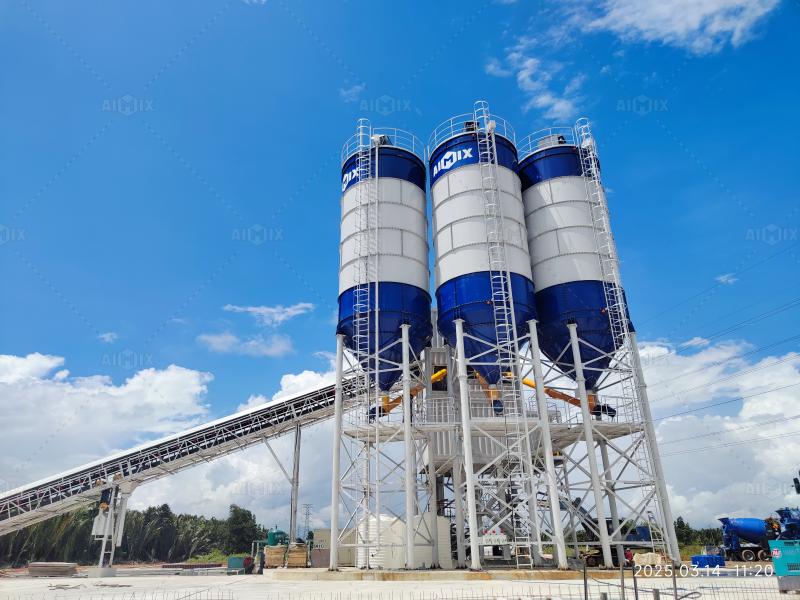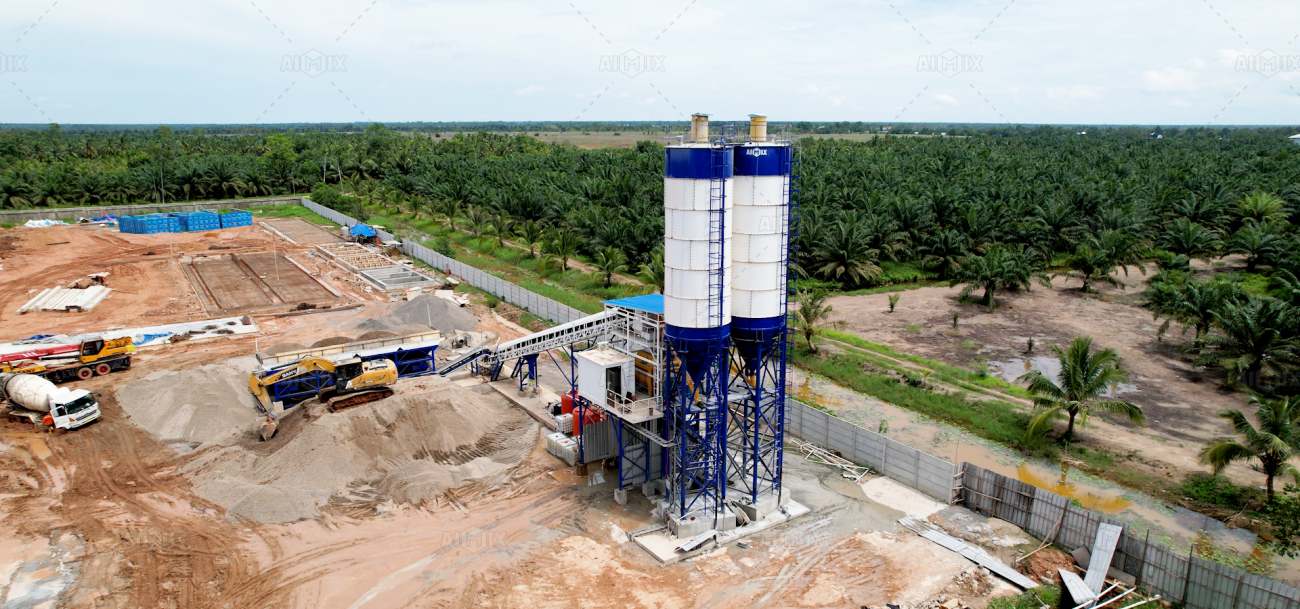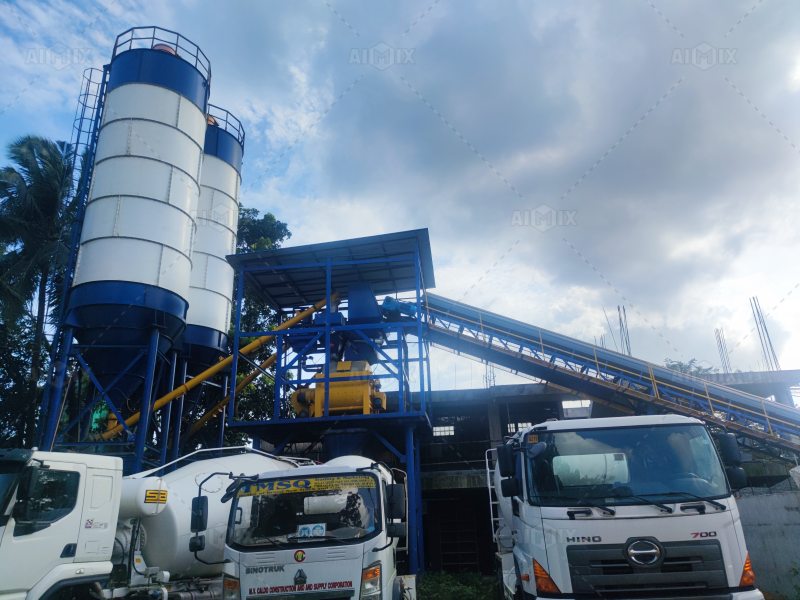As sustainability becomes a central concern in the construction and infrastructure sectors, the cost of setting up a concrete batching plant is increasingly influenced by environmental regulations. Investors looking to enter the ready-mix or precast concrete market must navigate a complex landscape of environmental laws, compliance requirements, and sustainable technology—all of which have a direct impact on the concrete batch plant price.
In this article, we’ll explore how environmental regulations affect the overall price of a concrete batch plant, key compliance areas to watch for, and how to make smart investment decisions that align with both profitability and environmental responsibility.

Understanding the True Cost of Compliance
Environmental regulations aren’t just bureaucratic red tape—they have real implications for plant design, equipment choice, land acquisition, operational processes, and long-term maintenance costs.
For instance, many countries now require:
-
Dust and particulate control systems (e.g., baghouse filters, enclosures)
-
Wastewater recycling systems to prevent discharge into local water bodies
-
Noise-reduction measures, especially for urban or residential sites
-
Energy-efficient motors and systems to reduce emissions and power usage
-
Green building certifications in some regions as a prerequisite for approval
All these compliance features contribute to an increase in the upfront concrete batch plant price. However, they may also lead to reduced operational costs and improved community acceptance in the long run.
Key Environmental Regulations Impacting Price
The level of regulatory pressure varies by country and region, but there are several common themes that drive up the cost of a compliant concrete batching plant:
-
Air Pollution Control
Dust and emissions from cement silos, conveyor belts, and mixers must be managed using advanced filtering and ventilation systems. The cost of a basic baghouse filter unit can range from $10,000 to $50,000, depending on plant capacity. -
Water Management and Recycling
A typical batching plant uses a significant amount of water for mixing, cleaning, and aggregate washing. Modern regulations require closed-loop systems that recycle grey water. Installing such systems can increase concrete batch plant price by $5,000–$30,000 or more, but also reduce long-term water usage costs. -
Noise and Vibration Mitigation
In urban environments, the use of low-noise motors, acoustic enclosures, and vibration damping foundations may be required, particularly for stationary concrete batching plants near residential zones. -
Site Planning and Environmental Impact Assessment (EIA)
Getting an environmental permit often involves hiring consultants to conduct an EIA and adapting the site layout accordingly. These indirect costs can add tens of thousands of dollars to your initial budget. -
Carbon Footprint Regulations and Green Building Standards
In some countries, investors are encouraged—or required—to minimize carbon emissions using energy-efficient components or renewable energy systems. This might include installing solar panels or using electric instead of diesel-powered systems.

Types of Plants and Their Environmental Footprint
Different types of concrete batching plants come with different compliance implications:
-
Stationary Plants generally require full compliance with environmental regulations due to their long-term footprint and proximity to urban infrastructure. They tend to have higher concrete batch plant prices due to dust control, wastewater management, and soundproofing requirements.
-
Mobile Plants often face fewer regulatory hurdles due to temporary use, but this varies by country. However, modern mobile batching plants are increasingly equipped with eco-friendly systems, which may increase their price slightly but simplify permit approval.
-
Dry Mix Plants tend to have lower water usage, reducing wastewater treatment costs. However, they still require air pollution control systems for dust and silo emissions.
Cost-Benefit Perspective: Compliance vs. Penalty
While it’s true that environmental compliance adds to the concrete batch plant price, failing to comply can be far more expensive in the long run. Regulatory fines, permit delays, forced shutdowns, and community opposition can cripple a project or business.
Forward-thinking investors often find that the added upfront cost of compliance is offset by:
-
Faster permit approval
-
Lower long-term operating costs (e.g., water, energy)
-
Improved worker and community safety
-
Enhanced brand reputation and marketability
Smart Investment Strategies
To balance cost and compliance, investors should consider the following strategies when purchasing or setting up a concrete batching plant:
-
Work with Experienced Suppliers
Choose suppliers like Aimix or other reputable global brands that offer plants already designed to meet environmental regulations. These suppliers often provide custom configurations for dust suppression, water recycling, and energy efficiency. -
Prioritize Modular and Scalable Designs
Investing in a modular batching plant allows future upgrades to meet evolving regulations without total system replacement. -
Factor in Local Regulations from Day One
Environmental compliance should be part of the planning and budgeting phase—not an afterthought. Engage local authorities and consultants early to avoid costly redesigns later. -
Leverage Government Incentives
In some regions, governments provide subsidies or tax benefits for investing in green equipment or sustainable construction processes. These can offset a portion of the higher concrete batch plant price.

Final Thoughts
The concrete batch plant price is no longer just a matter of equipment and capacity—it’s shaped significantly by environmental regulations and sustainable practices. For investors, understanding these factors is essential to make informed, future-ready decisions.
Choosing a compliant, efficient, and eco-conscious concrete batching plant may come at a higher initial cost, but it ensures smoother operation, legal peace of mind, and better long-term returns.
Thinking about setting up a concrete batching plant that meets environmental standards? Contact a trusted supplier today to get a tailored quote and expert guidance on eco-friendly configurations that fit your budget and goals.
Leave a Reply